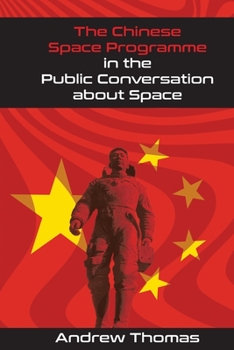The Chinese Space Programme in the Public Conversation about Space
This study is the product of a long view of space exploration and the conversations about space in China. It locates the multiple conversations about space exploration and utilisation as they are in the Peoples' Republic of China (PRC), within other conversations about space culture in the world. China is viewed by Western researchers though many lenses which are examined here critically. In previous studies, writers explain away China's space programme with the easy answers of a "Space Race" and a "China Threat", in which the space programme is seen as merely an example of global competition, or threat, but this thesis challenges those barriers to Western understanding of the Chinese public conversation of space culture. In this study, critical theory and an underlying epistemology within a post-Enlightenment cultural frame are applied to official, archival and ephemeral texts and images. The manner of the critical application is distinguished from derivate techniques operationalised as Open Source Intelligence. The concept of Place, and within that, Foucault's linguistic concept of "Heterotopia", is significant both in understanding the Chinese overseas space bases on Earth and the temporal and spatial dislocations experienced in space missions. In acknowledging the interpretative approach, an empirical study, a "Q-sort" has been carried out, which demonstrates that the key factor in the Chinese conversation is Science, within the context of modernisation, tempered by Chinese cultural affirmation and international co-operation. The thesis concludes by providing general principles in future work for successful research into the popular culture of space exploration.





